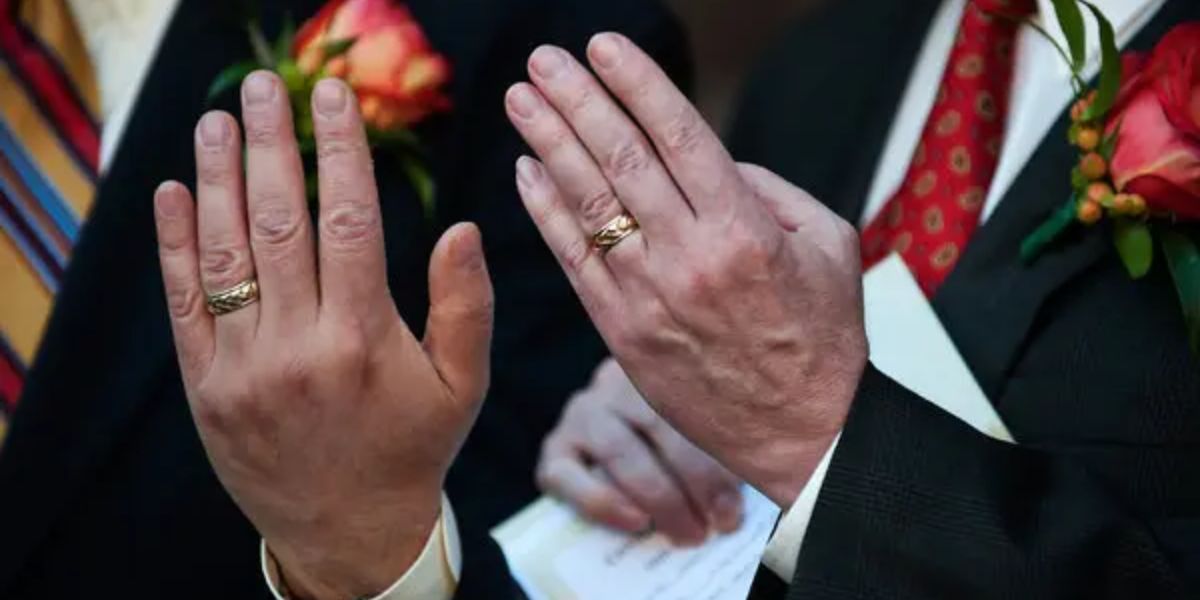Is Same-sex Marriage Legal in Colorado? A Full Breakdown of the Law and Its History
Same-sex marriage is legal in the state of Colorado and has been since 2014. This right was further cemented by the 2015 landmark U.S. Supreme Court decision in Obergefell v. Hodges, which legalized same-sex marriage across the United States.
In Colorado, the journey to marriage equality involved significant legal battles, shifting public opinion, and pivotal court rulings. Here’s a comprehensive look at the law, its historical evolution, and what it means for LGBTQ+ couples in the Centennial State today.
Early Legal Barriers: A Constitutional Ban
Before same-sex marriage was legalized, Colorado had a constitutional ban against it. In 2006, voters approved Amendment 43, which defined marriage in the state constitution as being only between one man and one woman. This amendment effectively barred same-sex couples from legally marrying in Colorado and represented a major setback for LGBTQ+ rights in the state.
The Push for Civil Unions
Though full marriage rights remained out of reach, Colorado made strides in recognizing same-sex relationships. In March 2013, the state passed the Colorado Civil Union Act, which allowed same-sex and opposite-sex couples to enter into civil unions. These unions granted many—but not all—of the same legal protections and responsibilities as marriage, such as hospital visitation rights, inheritance rights, and the ability to make medical decisions for a partner.
While the law was an important step forward, advocates continued to fight for full marriage equality, arguing that civil unions still relegated LGBTQ+ couples to second-class legal status.
The Turning Point: Court Rulings in 2014
The landscape for same-sex marriage in Colorado changed dramatically in 2014. In July of that year, a state judge ruled that Colorado’s ban on same-sex marriage was unconstitutional. However, the ruling was stayed pending appeal, meaning it didn’t immediately take effect.
Simultaneously, a federal appeals court in the 10th Circuit (which includes Colorado) struck down Utah’s same-sex marriage ban. Since Colorado falls under the same jurisdiction, this ruling had significant implications. Then-Governor John Hickenlooper and Attorney General John Suthers decided not to continue defending Colorado’s ban, and the state began issuing marriage licenses to same-sex couples in October 2014.
Nationwide Legalization: Obergefell v. Hodges
On June 26, 2015, the U.S. Supreme Court issued its decision in Obergefell v. Hodges, ruling that same-sex couples have a constitutional right to marry under the Fourteenth Amendment. This decision invalidated all remaining state bans, including Colorado’s previous Amendment 43, which was already unenforceable due to earlier court rulings.
After Obergefell, same-sex marriage became the law of the land, with all states—including Colorado—required to issue marriage licenses to same-sex couples and recognize such marriages performed in other jurisdictions.
Current Status of Same-Sex Marriage in Colorado
As of today, same-sex marriage is fully legal in Colorado. Couples of any gender can obtain a marriage license, enjoy the same rights and responsibilities as heterosexual married couples, and have their marriages recognized by both state and federal governments.
Colorado law no longer differentiates between same-sex and opposite-sex couples in terms of marriage rights. This includes areas such as:
- Adoption and parenting rights
- Healthcare decision-making and visitation
- Tax filing and inheritance laws
- Property ownership and spousal benefits
Religious Protections and Exemptions
Colorado, like many states, has sought to balance marriage equality with religious freedom. Religious institutions are not required to perform or recognize same-sex marriages if it conflicts with their beliefs. However, businesses and public services are generally prohibited from discriminating against same-sex couples based on sexual orientation, particularly under Colorado’s Anti-Discrimination Act.
There have been legal disputes, most notably the Masterpiece Cakeshop v. Colorado Civil Rights Commission case, where a baker refused to create a wedding cake for a same-sex couple due to religious objections. While the U.S. Supreme Court ultimately sided with the baker in a narrow decision, the ruling did not grant a broad license to discriminate and left many questions open for future cases.
Public Opinion and Social Progress
Over the years, public support for same-sex marriage in Colorado has grown significantly. Polls show that a majority of Colorado residents now support marriage equality, reflecting a broader shift in national attitudes.
Colorado has also passed additional protections for LGBTQ+ individuals, including laws banning conversion therapy for minors, strengthening anti-discrimination statutes, and recognizing gender identity and expression in legal documents and policies.
Challenges and Ongoing Advocacy
While same-sex marriage is secure under current law, advocates remain vigilant. Concerns have been raised about future Supreme Court rulings that could revisit or weaken Obergefell. For this reason, activists continue to push for federal legislation, like the Respect for Marriage Act—to safeguard marriage equality from judicial reversal.
In Colorado, organizations like One Colorado and The Center on Colfax continue working to promote equality and support LGBTQ+ families across the state.
Conclusion
Same-sex marriage is fully legal in Colorado and enjoys broad public and legal support. From early constitutional bans to civil unions and eventually full marriage rights, the state has undergone a dramatic transformation. While the law now protects marriage equality, continued vigilance and advocacy are essential to ensure these rights remain secure for future generations.

